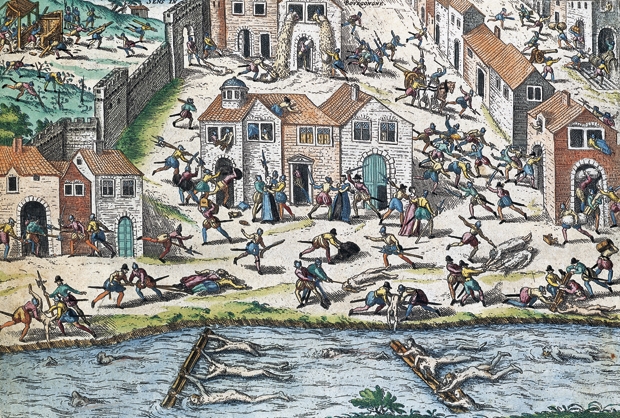France’s early 21st-century Protestants are eco-friendly, gender-sensitised and respectful of the Fifth Republic’s laïcité. But their ancestors were a less accommodating lot. La réforme in the France of the 16th century was well-educated, predominantly urban and organised as part of a pan-European Protestant movement which set out to subvert the territorial sovereignty of Catholic princes. Its leaders included some of the French aristocracy’s boldest spirits, whose dynastic ambitions to exercise an earthly dominion blended easily with the dogmatic confidence of Protestantism at its most driven and alluring.
Lutheranism made an initial impact through the circles of humanist opinion in Paris and other centres of enlightenment — such as the courts of the nobility, where women such as Marguerite d’Angoulême, the sister of King François I, found in justification by faith an excitement and an intellectuality that liberated them from the banality of aristocratic ritual. And in the generation that followed, French rebels could look to Jean Calvin, who was born in Noyon and established himself in Geneva’s safety, where, with a confidence that marks him out as the first of France’s public intellectuals, he penned the works that justified rebellion against the French crown.







Comments
Join the debate for just $5 for 3 months
Be part of the conversation with other Spectator readers by getting your first three months for $5.
UNLOCK ACCESS Just $5 for 3 monthsAlready a subscriber? Log in